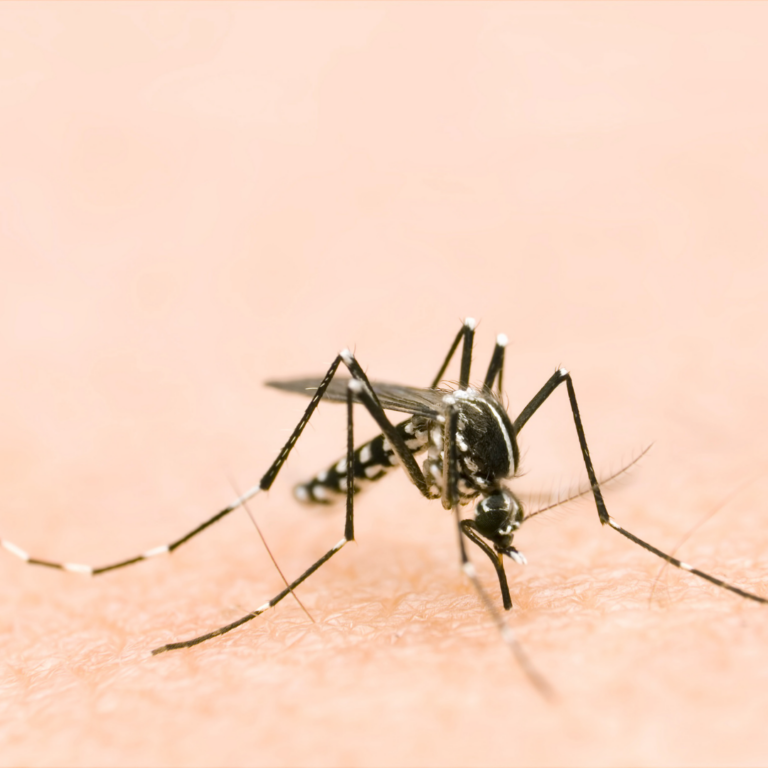Mosquito Season Is Coming
Published: March 27, 2023

Mosquitoes are an unwelcome part of life in Florida, with our constant warm temperatures and humidity. Homeowners must contend with mosquitoes year-round; however, mosquito season can peak from April to October as the hot weather provides even better conditions for these pests. Now is the time to start preparing your home and yard for what could be a very active mosquito season this year—so don’t wait any longer to make sure you’re adequately protected! In this blog post, we will discuss why it’s critical to plan ahead now before mosquito season arrives in full force, as well as some useful tips on how you can do just that.
What to Know About Mosquitoes in Florida
Mosquitoes are a common sight in Florida, especially during the warmer months. These pesky insects can be more than just a nuisance, as they can also carry diseases such as West Nile virus and Zika. It’s important to take precautions to protect yourself and your loved ones from bites. This includes wearing long sleeves and pants, using insect repellent, and avoiding being outside during dawn and dusk when mosquitoes are most active. Additionally, it’s important to remove any standing water from around your home, as this is where mosquitoes like to breed. By taking these measures, you can reduce your chances of being bitten and potentially exposed to harmful diseases.
How to Prevent Mosquito Infestations Around Your Home
As the temperatures rise, so do the chances of mosquito infestations around your home, and the last thing you want is to spend your days swatting away these pesky insects. Taking preventative measures is key to keeping these uninvited guests at bay. To start, look for any areas of standing water around your yard and remove them promptly, as these are breeding grounds for mosquitoes. Additionally, make sure to regularly trim your grass and bushes, as mosquitoes tend to hide in overgrown foliage during the hotter months. Consider using mosquito-repelling candles, sprays, or natural remedies like citronella, which can help ward off these insects. These easy and effective measures can make your outdoor space more pleasant and mosquito-free.
Identifying Common Mosquito Breeds in Florida
Mosquitoes are a common nuisance in Florida, but did you know that not all mosquitoes are the same? By identifying the specific type of mosquito, we can better understand their behavior and potential risks. In Florida, some of the most common mosquito types include the Aedes aegypti, which is known for spreading diseases such as Zika and dengue fever, and the Culex quinquefasciatus, which can transmit West Nile virus. It’s important to note that not all mosquitoes are capable of transmitting diseases, but all can still be a nuisance. By learning how to identify the different types, we can take appropriate measures to protect ourselves and our environment from these pesky insects.
Controlling Mosquitoes with Chemical Treatments
Mosquitoes are notorious for their itchy bites and ability to transmit diseases. Luckily, there are treatments available to help control their population. These treatments usually involve spraying a pesticide that targets adult mosquitoes, larvae, or both. While chemical treatments can be effective in reducing the number of mosquitoes in an area, it is important to use them responsibly and follow all safety precautions. It is essential to use chemical treatments as part of an integrated mosquito management plan that includes regular monitoring and the use of non-chemical methods such as eliminating standing water and using mosquito traps. By carefully and thoughtfully implementing treatments, we can help protect ourselves and our communities from the risks associated with mosquito-borne illnesses.
Tips for Safely Enjoying Outdoor Activities During Mosquito Season
As warm weather approaches, so does mosquito season. While it’s tempting to spend as much time as possible in the great outdoors, it’s important to take precautions to avoid mosquito bites. One of the best ways to prevent mosquito bites is to wear long sleeves and pants, especially during peak mosquito activity at dawn and dusk. Using mosquito repellent with DEET or other EPA-approved ingredients can also be helpful. If you plan on spending time in heavily wooded or wetland areas, consider investing in mosquito netting for added protection. Taking these simple measures can help ensure a safe and enjoyable outdoor experience during mosquito season.
Natural Solutions for Long-Term Control of Mosquitoes in Florida
As Florida residents know all too well, mosquitoes can be a constant and annoying presence in the warm and humid climate. While chemical sprays and treatments can offer short-term relief, natural solutions can provide longer-lasting control of these pesky insects. One option is to plant mosquito-repelling plants such as citronella, catnip, and lavender. These plants not only add beauty to your outdoor spaces but also emit fragrances that mosquitoes find unpleasant. Additionally, removing sources of standing water, where mosquitoes breed and lay eggs, can greatly reduce the mosquito population in your vicinity. By incorporating these natural solutions into your mosquito control plan, you can enjoy your time outdoors without being constantly bothered by these buzzing insects.
In conclusion, it pays off to be informed and proactive when dealing with mosquitoes in Florida. Knowing what types of mosquitoes are common in your area can help you take the proper steps to control them and identify any potential problems. Additionally, controlling any infestations on your property or in other areas where you spend time outside using chemical treatments or even natural solutions is also helpful for long-term management of mosquitoes. Taking preventative measures such as wearing protective clothing and limiting activities when mosquito activity is most active is also beneficial for enjoying outdoor activities without worry. With knowledge and diligence, maintaining a mosquito-free lifestyle in Florida is possible today.